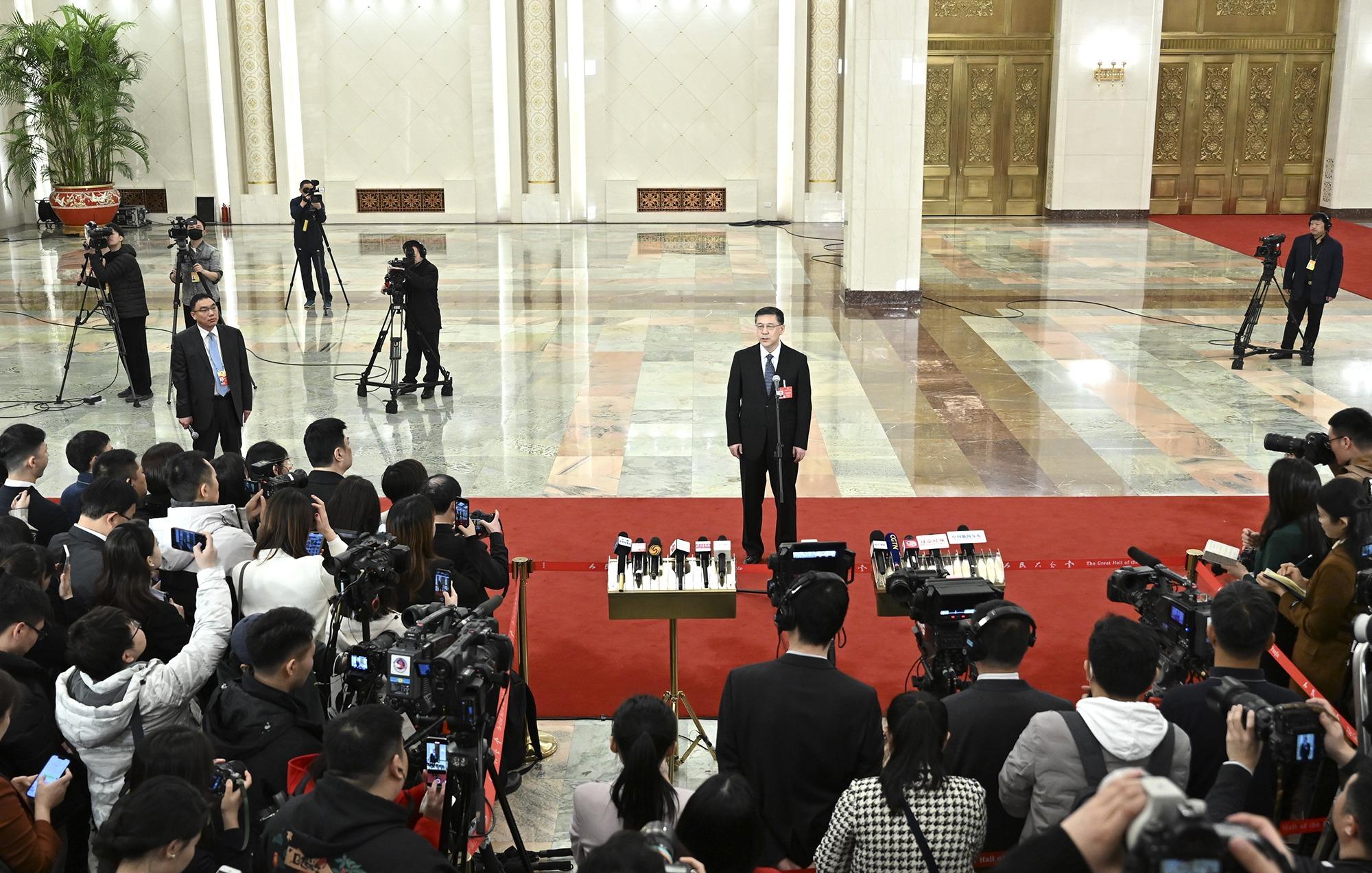 Science and Technology Minister Yin Hejun gives an interview after the opening meeting of the second session of the 14th National People's Congress at the Great Hall of the People in Beijing on March 5, 2024. (PHOTO / XINHUA)
Science and Technology Minister Yin Hejun gives an interview after the opening meeting of the second session of the 14th National People's Congress at the Great Hall of the People in Beijing on March 5, 2024. (PHOTO / XINHUA)
China's investment in research and development rose 8.1 percent last year to more than 3.3 trillion yuan ($458.4 billion), Science and Technology Minister Yin Hejun said in Beijing on Tuesday.
He added that funding for basic research was 221.2 billion yuan, up 9.3 percent year-on-year.
READ MORE: China increased R&D investment 8.1% to over $458b
Last year, 950,000 new technology contracts were signed in China and the number of authorized invention patents reached 921,000, up 15.3 percent year-on-year, Yin said in an interview following the opening meeting of the second session of the 14th National People's Congress, China's top legislature.
"New energy vehicles, lithium batteries and photovoltaic modules, the so-called new three items that everyone is talking about, had very pleasing growth rates in exports last year," the minister said.
"Technological innovation has not only enhanced the competitiveness of our country's traditional industries but has also solidified the foundation for developing new quality productive forces, injecting momentum."
Yin said that last year, China made major original achievements in quantum technology, integrated circuits, artificial intelligence, biomedicine and new energy, including the start of official operation of the world's first fourth-generation nuclear power plant and the commercial operation of the C919 airliner.
ALSO READ: More scope for sci-tech innovation pledged
China will increase investment in scientific and technological research and continue to strengthen basic research, strengthen the power of national strategy, and leverage the advantages of national laboratories and national scientific research institutions, he said.
Yin emphasized the important role of young people in technological development.
"Young people are the most creative and have the greatest potential for innovation," he said.
"They are now an important force for our country to advance high-level science and technology self-reliance, and in the future, they will be the main force in building a strong country in science and technology."


